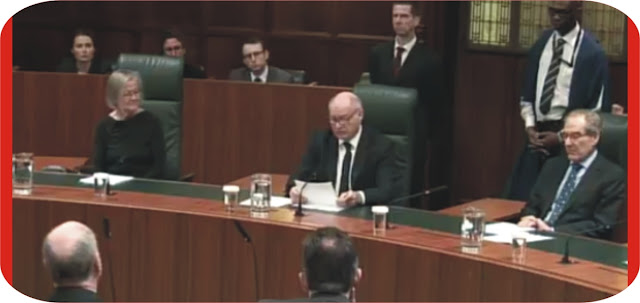British Prime Minister Theresa May suffers another legal blow today as the UK Supreme Court rules against her Brexit appeal.
Find below some analysis of the day as reported by Sky News.
"To proceed otherwise would be a breach of settled constitutional principles stretching back many centuries."
Find below some analysis of the day as reported by Sky News.
"To proceed otherwise would be a breach of settled constitutional principles stretching back many centuries."
The Prime Minister has said she
intends to invoke Article 50 by the end of March, and the Government is now
expected to quickly publish a bill in an effort to stick to that timetable.
A Downing Street spokesman said:
"The British people voted to leave the EU, and the Government will deliver
on their verdict - triggering Article 50, as planned, by the end of March.
Today's ruling does nothing to change that."
While it is thought to be unlikely
that the Government will lose a vote in Parliament, the Supreme Court's
decision, by an 8-3 majority, has the potential to hold up the Brexit process.
Labour has said it will table a
number of amendments and seek more details on the Government's negotiation
strategy, the SNP has vowed to vote against the plans and the Liberal Democrats
will oppose the move unless the PM promises a second referendum.
Although the ruling is a blow to
Mrs May, the justices unanimously ruled there was no need to consult with the
devolved administrations in Scotland, Wales and Northern Ireland.
This could have been much more
significant in terms of derailing her Brexit timetable.
Attorney General Jeremy Wright
said the Government was "disappointed" with the ruling but would
comply with it.
The case was won by a
wide-ranging group of anti-Article 50 campaigners, led by investment manager
Gina Miller, 51, and hairdresser Deir Dos Santos.
Speaking outside the court, she
said: "This ruling today means that MPs we have elected will rightfully
have the opportunity to bring their invaluable experience and expertise to bear
in helping the Government select the best course in the forthcoming Brexit
negotiations."
In one of the most important
constitutional cases in British legal history, three High Court judges ruled in
November that ministers did not have the authority to trigger Article 50
without parliamentary approval.
Last month, Brexit Secretary
David Davis led the Government's effort to overturn the ruling in a four-day
hearing before the 11 Supreme Court justices.
Source: Sky News, January 2017











No comments:
Write comments